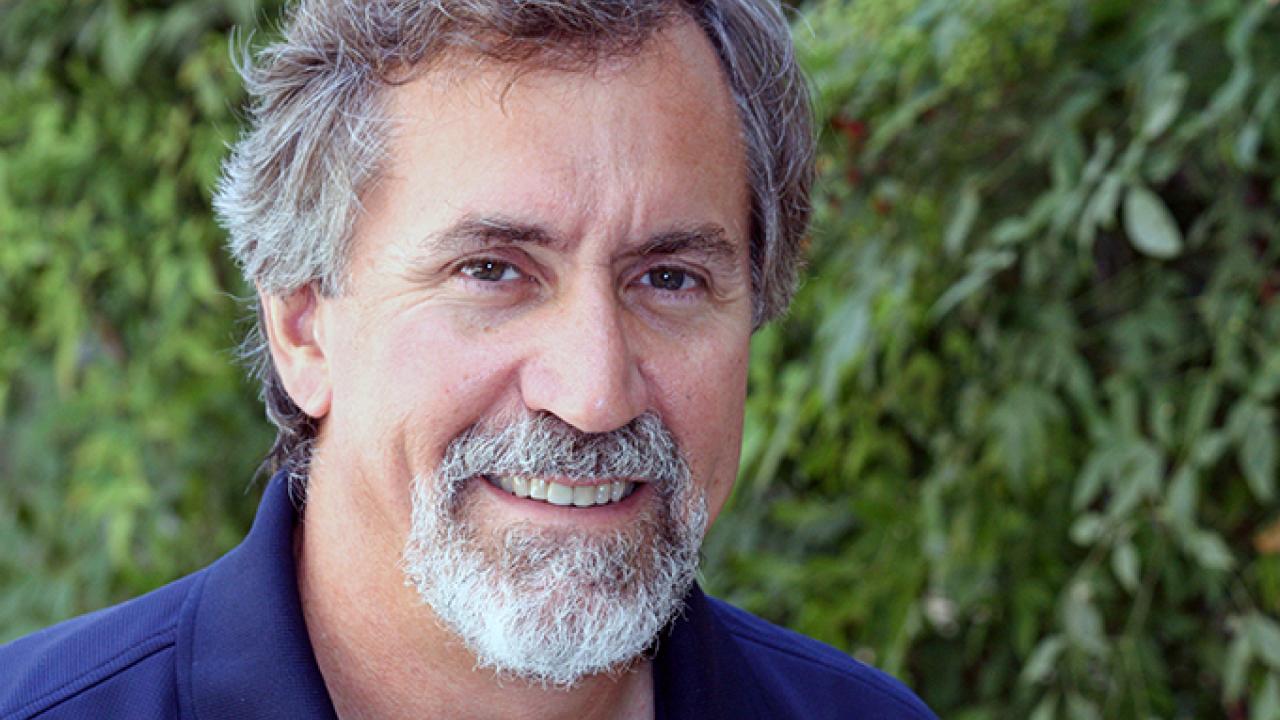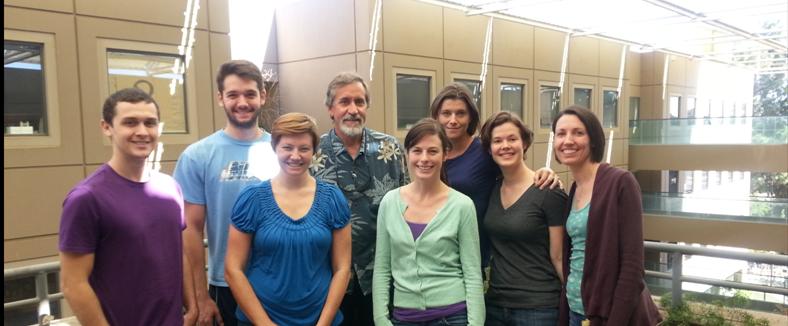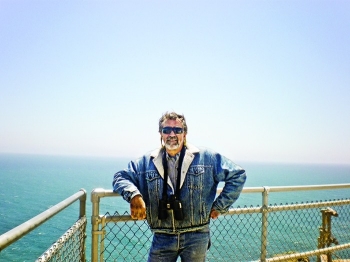
Spotlight On: Ronald Tjeerdema
Ronald Tjeerdema is Associate Dean for Environmental Sciences in the College of Agricultural and Environmental Sciences. He completed his Ph.D. at UC Davis, and returned in 1999 to be a professor in the Department of Environmental Toxicology.
Tell us a little bit about your background. How did you come to get involved in science?
 Growing up, I was always interested in the great outdoors and loved spending time in the mountains both hiking and camping. Living in Orange County, my numerous days at the beach also fostered my love for the environment. Thus, I thought pursuing a career working outdoors would be ideal, so I attended a local community college with the intent of completing a degree in forestry. However, after transferring to Humboldt State I decided that I wanted to address the problems caused by pollution, with an emphasis on fish and wildlife. After graduating I moved to UCSB, where I studied pharmacology while focusing on the impacts of PCBs on marine invertebrates. Moving on to UCD, I pursued a doctorate in pharmacology and toxicology with a focus on environmental toxicology.
Growing up, I was always interested in the great outdoors and loved spending time in the mountains both hiking and camping. Living in Orange County, my numerous days at the beach also fostered my love for the environment. Thus, I thought pursuing a career working outdoors would be ideal, so I attended a local community college with the intent of completing a degree in forestry. However, after transferring to Humboldt State I decided that I wanted to address the problems caused by pollution, with an emphasis on fish and wildlife. After graduating I moved to UCSB, where I studied pharmacology while focusing on the impacts of PCBs on marine invertebrates. Moving on to UCD, I pursued a doctorate in pharmacology and toxicology with a focus on environmental toxicology.
How does your experience at UC Davis as a Ph.D. student compare to now as an Associate Dean of Environmental Sciences? What were some highlights of each?
As a doctoral student, my everyday activities were focused on developing my career. Thus in addition to completing coursework, I was deeply engrossed in my dissertation research. As an associate dean, my everyday activities are focused on assisting the environmental departments and programs both within our college and across campus. My focus is much more on helping others and elevating the status and reputation of UCD at both the national and international levels.
 What inspired your research interests?
What inspired your research interests?
My interests in pollution also began during my formative years, as growing up in Southern California in the ‘60s and ‘70s provided numerous opportunities to witness firsthand the impacts of pollution – both air and water. Not a day passed that I didn’t look up and wonder what a beautiful place it would be without the thick brown layer of smog!
Tell us a bit about your research. What are some of the challenges of your research and what is your favorite aspect of it? What are you most proud of?
My research has a general focus on characterizing both the fate and toxic impacts of chemicals in the aquatic environment. Chemicals are the tools of a high-tech society, so it is my goal to help determine how they may be best used safely. Therefore, I focus on describing how chemicals are degraded to less toxic products in the environment, thus reducing their risk. I also focus on the biochemistry and physiology behind the toxic actions of chemicals. My interests have included impacts on invertebrates and fishes, and have included pesticides, petroleum hydrocarbons, dispersants and natural marine toxins.
In terms of research accomplishments, I am most proud of two research directions: the development of the field of environmental metabolomics, where large magnets are used to determine the holistic metabolic effects of chemicals in aquatic organisms, and our development of standardized methods for assessment of the toxic actions of oil and dispersants (known as “CROSERF Methods”).
Why are you still interested in your field of research? What is your motivation to continue in this field?
There are still so many environmental problems that are connected to anthropogenic chemicals, with new ones arising all the time. For instance, while pesticide runoff and oil spills were the focus in the past, now out of necessity we have turned our attention to ocean acidification and increasingly common hazardous algal blooms (both with roots in climate change).
What are you hoping your research will accomplish?
My hope is that my research will address widespread chemophobia in today’s public. Chemicals are a part of everyday life, and most are useful tools – from drugs to detergents and everything in between. While most end up in the environment, they also degrade to basic elements and recycle in nature. My goal is to describe how they may be used safely, thus avoiding the environmental problems of the past.
What do plan on seeing changed over the next decades in your field?
In future years I hope to see the field of environmental toxicology continue to move more toward what I consider to be the “black box” – the ultimate holy grail of the field of describing the specific molecular mechanism by which each chemical conveys its toxic action. Armed with this understanding, we can predict toxic actions in individuals, populations or ecosystems and potentially develop remediation strategies and/or programs.
Do you have any advice for future scientists who may want to pursue a similar field?
My advice would be to follow your dreams, and couple them with a solid foundation in the basic sciences – particularly chemistry and biology – as they will provide you with the tools necessary to make your dreams come true!
